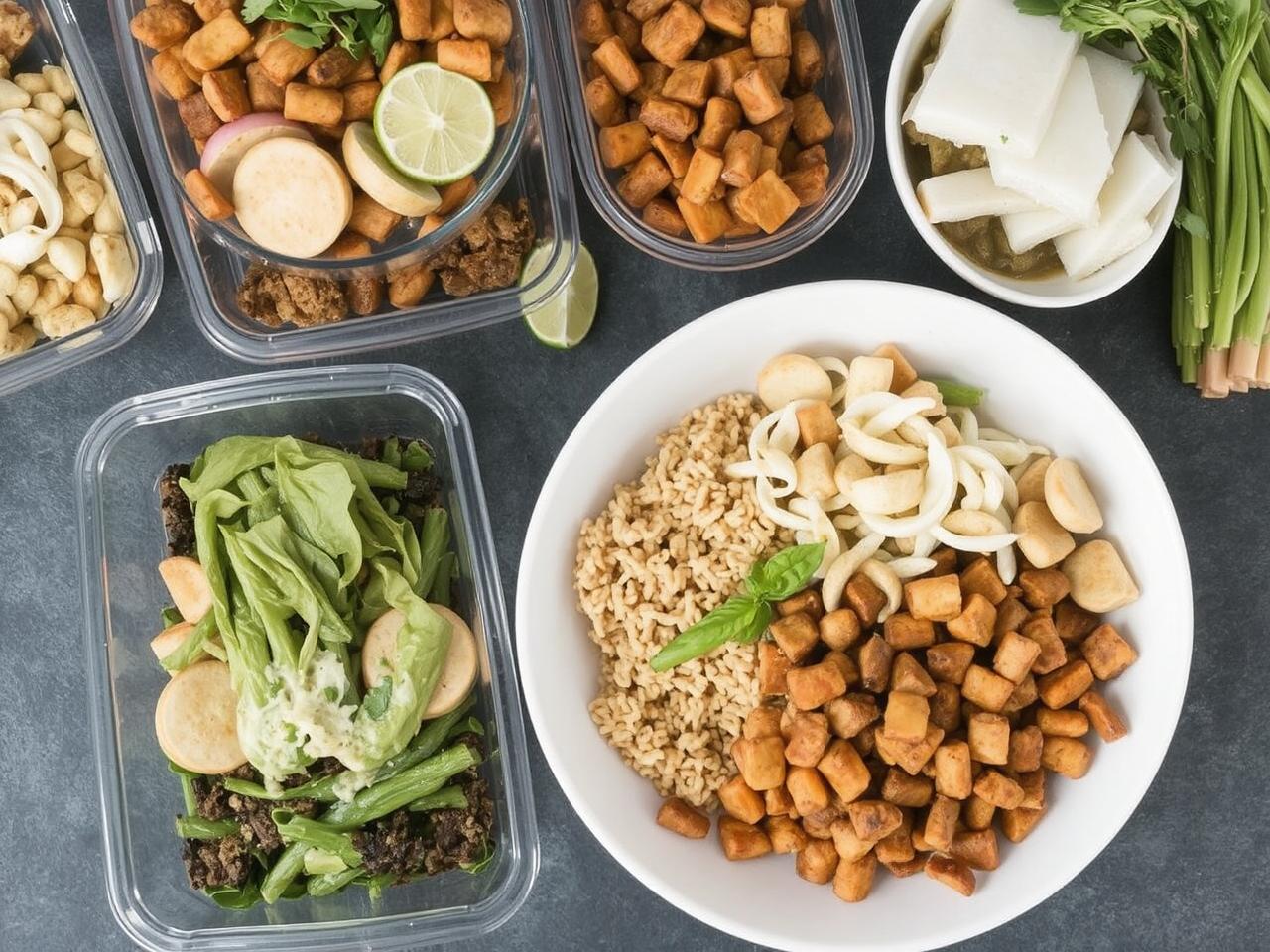Planning and Organizing Your Meals
Understanding Your Dietary Needs
Effective meal planning begins with a clear understanding of your dietary needs and preferences. You should take the time to assess your weekly schedule and identify the days when you will need quick meals versus those when you can afford to spend more time cooking. This foresight allows you to create a balanced meal plan that accommodates your lifestyle while ensuring that you meet your nutritional requirements.
Creating a Balanced Meal Plan
Consider incorporating a variety of proteins, vegetables, and whole grains into your meals to keep things interesting and satisfying. By mapping out your meals for the week, you can also ensure that you are not repeating the same dishes too frequently, which can lead to boredom and a lack of motivation. This approach will help you maintain a healthy and varied diet.
Organizing Your Grocery List
Once you have established a meal plan, organizing your grocery list becomes essential. You should categorize items based on their location in the store—produce, dairy, grains, etc.—to make your shopping trip as efficient as possible. This organization not only saves time but also helps prevent impulse purchases that can derail your budget and health goals. Additionally, consider using digital tools or apps designed for meal planning and grocery shopping. These resources can help you keep track of what you need and even suggest recipes based on the ingredients you already have at home.
Choosing the Right Recipes and Ingredients
Selecting the right recipes is crucial for successful meal prep. You should aim for recipes that are not only nutritious but also easy to prepare in bulk. Look for dishes that can be made in large quantities and stored well without losing flavor or texture.
One-pot meals, casseroles, and stir-fries are excellent options as they often combine multiple food groups into one dish, making them both convenient and satisfying. Additionally, consider recipes that allow for customization; this way, you can easily adapt them based on seasonal ingredients or personal preferences. The goal is to create a repertoire of go-to recipes that you enjoy and can rely on week after week.
When it comes to choosing ingredients, prioritize fresh produce and whole foods over processed items. Fresh fruits and vegetables not only provide essential vitamins and minerals but also add vibrant colors and flavors to your meals. You should also consider incorporating frozen fruits and vegetables into your meal prep; they are often just as nutritious as fresh options and can be stored for longer periods without spoiling.
Furthermore, don’t shy away from experimenting with different grains such as quinoa, farro, or brown rice, which can add variety and texture to your dishes. By carefully selecting recipes and ingredients that align with your health goals and taste preferences, you create a foundation for successful meal prep that keeps you excited about eating well.
Efficient Cooking and Storage Techniques
To maximize the benefits of meal prep, it’s essential to adopt efficient cooking techniques that save time without compromising quality. Batch cooking is one of the most effective methods; by preparing large quantities of food at once, you can significantly cut down on cooking time throughout the week. For instance, consider roasting multiple trays of vegetables or cooking several servings of grains simultaneously.
Utilizing kitchen appliances such as slow cookers or pressure cookers can also streamline the process; these devices allow you to set it and forget it while they do the heavy lifting for you. Additionally, multitasking in the kitchen—such as chopping vegetables while something simmers on the stove—can further enhance your efficiency. Once your meals are cooked, proper storage is key to maintaining freshness and flavor.
Invest in high-quality containers that are both microwave-safe and airtight to keep your meals from spoiling. Glass containers are an excellent choice as they are durable and do not retain odors or stains like plastic can. Labeling your containers with dates will help you keep track of how long each meal has been stored, ensuring that nothing goes to waste.
You should also consider portioning out meals into individual servings; this not only makes reheating easier but also helps with portion control. By implementing these efficient cooking and storage techniques, you can enjoy the fruits of your labor throughout the week without any hassle.
Tips for Saving Time and Money
Saving time and money while meal prepping is achievable with a few strategic approaches. One effective method is to plan your meals around sales and seasonal produce at your local grocery store. By taking advantage of discounts on fresh ingredients, you can significantly reduce your grocery bill while ensuring that you are using high-quality items in your meals.
Additionally, consider creating a rotating meal plan that incorporates similar ingredients across different recipes; this minimizes waste and allows you to buy in bulk without fear of spoilage. For example, if you purchase a large bag of spinach, use it in salads, smoothies, and cooked dishes throughout the week. Another way to save time is by simplifying your cooking process through the use of pre-chopped or frozen ingredients when necessary.
While fresh produce is ideal, there’s no shame in utilizing frozen vegetables or pre-cut items if it means getting a healthy meal on the table faster. You should also consider dedicating one day each week solely to meal prep; this focused approach allows you to batch cook efficiently without distractions. Lastly, don’t forget about leftovers!
Repurposing leftover ingredients into new meals can save both time and money while reducing food waste. By implementing these tips into your meal prep routine, you’ll find yourself enjoying nutritious meals without breaking the bank or sacrificing precious time.
Maintaining a Healthy and Balanced Diet
Maintaining a healthy and balanced diet through meal prep requires mindfulness about what goes into your meals. You should strive for a colorful plate filled with a variety of nutrients—this means incorporating lean proteins, whole grains, healthy fats, and plenty of fruits and vegetables into your weekly menu. It’s essential to pay attention to portion sizes as well; even healthy foods can contribute to weight gain if consumed in excess.
By preparing balanced meals in advance, you create an opportunity to nourish your body effectively while avoiding the pitfalls of unhealthy snacking or overeating. Moreover, staying flexible with your meal prep is crucial for long-term success. While having a plan is beneficial, it’s equally important to listen to your body’s needs and cravings throughout the week.
If you find yourself craving something different than what you’ve prepared, don’t hesitate to switch things up or incorporate new ingredients into your meals. This adaptability not only keeps your diet interesting but also helps prevent feelings of deprivation that can lead to binge eating or unhealthy choices later on. By focusing on balance and flexibility in your meal prep routine, you empower yourself to maintain a healthy lifestyle that is both enjoyable and sustainable over time.




